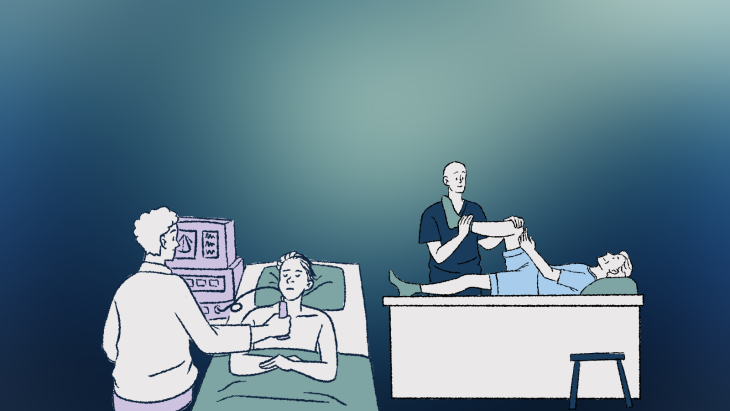Recent Posts
- I broke up with my partner, but now I am having doubts. Did I do it out of the right reasons or was I just being fearful?
- My Quick Temper Pushes People Away. What Do I Do To Manage My Anger?
- How does noise affect my mental health?
- I want to be a better problem solver. What is a step by step approach?
- Escapism. When is it healthy? When is it damaging?
Most Popular
Why You May Want To See A Physical Therapist Before You Get Surgery?

Getting surgery done can be pretty terrifying. Letting other people literally see the inside of your body after cutting it open can be a cause of your anxiety. One thing that might help ease your mind is seeing a physical therapist before surgery. This is also called prehabilitation. Essentially, it means that you are going to have targeted strengthening exercises during your sessions.
You will be working with your physical therapist on these sessions. They are part of the healthcare system that helps patients improve or bring back their normal movement and function. This involves exercise and manual therapy. Seeing a physical therapist usually happens after surgery but seeing one before surgery provides a lot of benefits that can make your recovery time faster. Here are some of those benefits.
Less Muscle Atrophy
Not being able to move a part of your body for a few weeks can cause thinning or the loss of muscle tissue. That is called muscle atrophy. Having an injury or getting a disease that will require you to have bed rest can cause that.
Mobilizing your muscles before surgery and building muscles in areas where you are expected not to use them in a few weeks will lessen the muscles that you have to rebuild after surgery. Or you may not simply experience muscle loss and returning to your full range of motion is going to be easier after surgery.
No Surgery Option
In some cases, you may not need to have surgery after your consultation. One particular example where you may not need surgery is having a herniated disc; having a bulged, slipped, or ruptured disc. You can opt to do a Platelet Rich Plasma (PRP) therapy wherein a part of your own blood is injected back into your body to heal itself.
Hence, if you are still having doubts about that surgery, seeing a physical therapist will give you more options. Some people who have still undergone surgery after doing non-surgical therapy have not improved their condition through the latter.
Help Set Expectations After Surgery
Seeing a physical therapist can also help you deal with your health problems mentally and emotionally. The people you are working with are experts in human anatomy and physiology. Talking to them will allow you to see the extent and severity of what will happen after surgery. They were also trained to have excellent bedside manners to help their patients during recovery time so the people that will work with you will be going to be patient, collaborative, and compassionate.
Pain Minimization
Pain will be more tolerable if you see a physical therapist before your surgery. This reduces inflammation and increases blood circulation in the affected areas resulting in lesser pain and faster healing.
This can also mean that you will be less likely inclined to be dependent on drugs that alleviate the pain such as opioids and which are highly addictive.
Shorten Hospitalization Time
Getting hospitalized will take money and time from you and before you get discharged, you will be tested. You must be able to move into and out of your bed safely, walk at a specific distance, and do basic self-care stuff with no assistance. A lot of these activities involve balance and coordination and seeing a physical therapist will certainly help you. Not being able to do these things will certainly prolong your stay in the hospital and you definitely do not want that unless you are avoiding work. Kidding!
It is highly recommended to see a physical therapist after getting any bone surgeries. Talking to your orthopedic surgeon about this will also help you decide. A lot of research has proven this notion. It may take more of your time and money but it will also help you in the long run. Whatever you decide, I`m sure it is going to be the best fit for your family and your health.
#Prehabilitation #PhysicalTherapyBeforeSurgery #SurgeryPreparation #RecoveryTips #MuscleAtrophyPrevention #NonSurgicalOptions #HealthExpectations #PainManagement #HospitalizationTime #OrthopedicSurgery #PatientWellness #MedicalRehabilitation #PostoperativeCare #HealthcareInsights








Comments